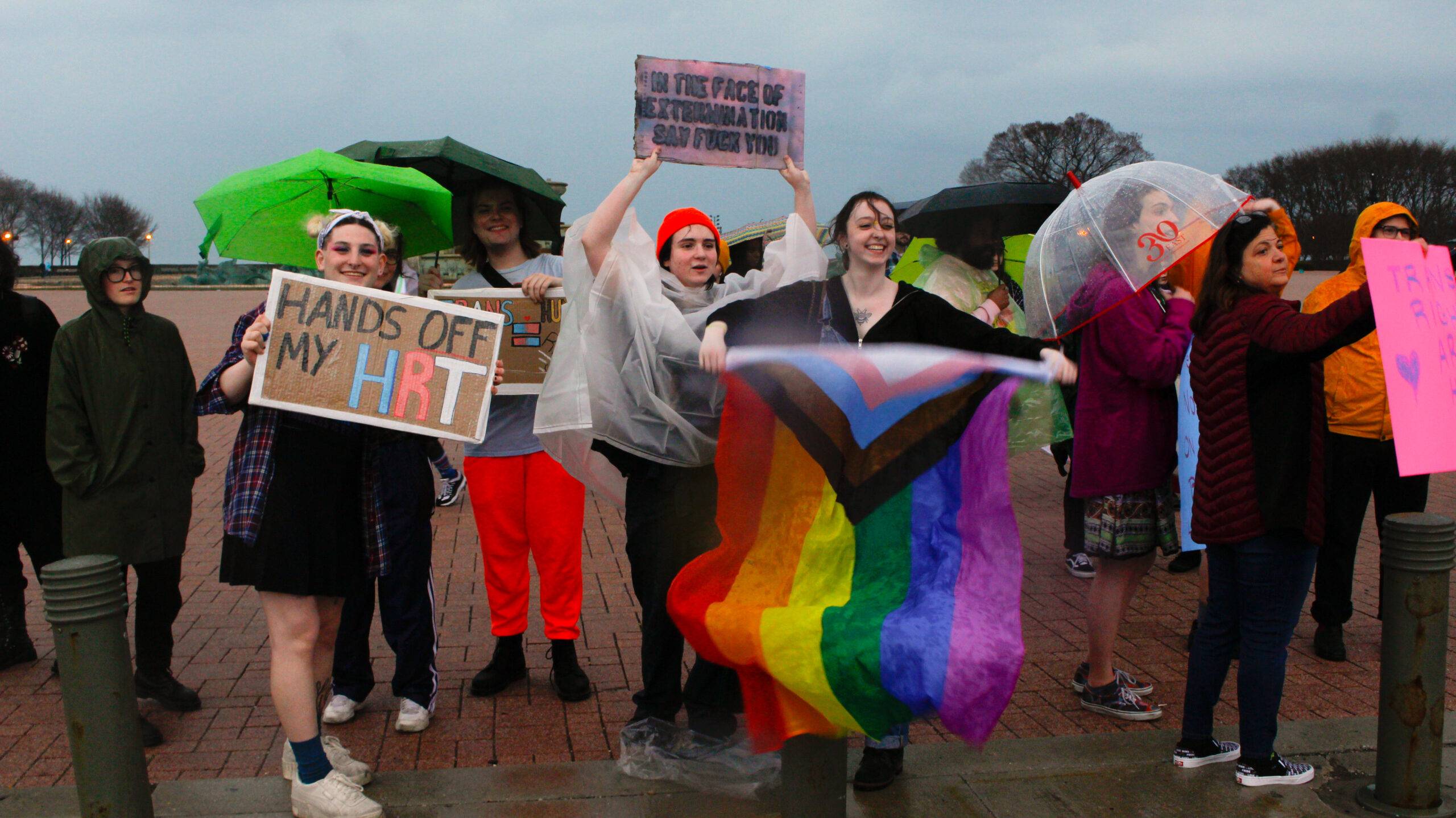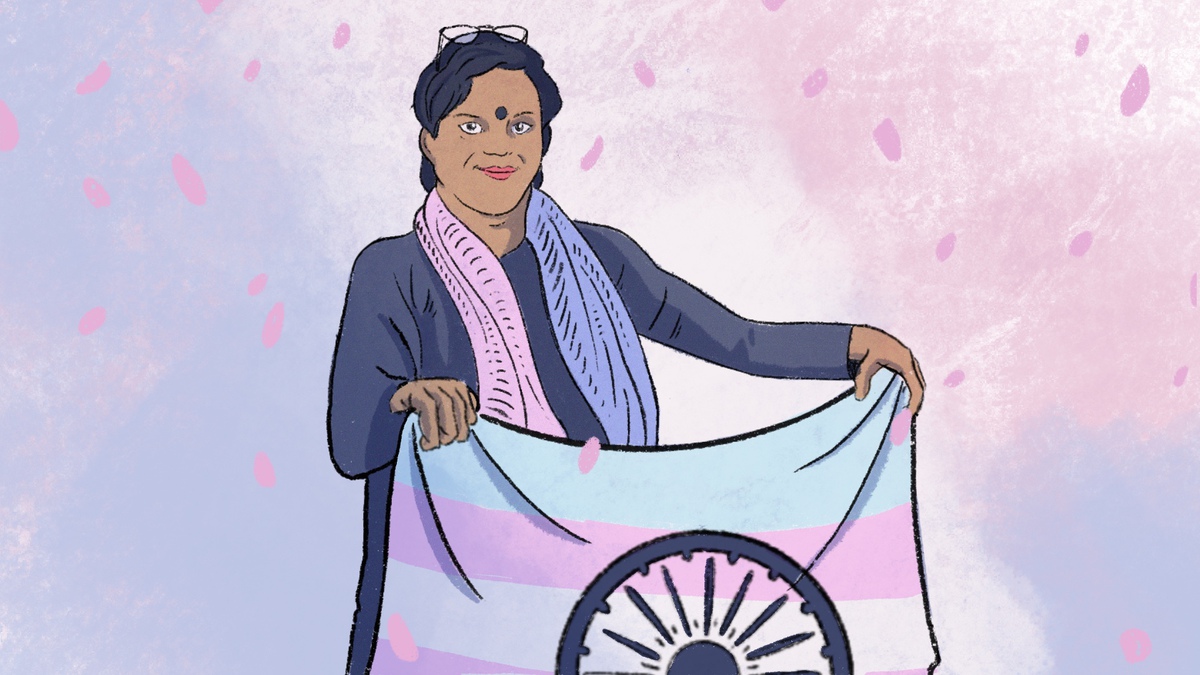The sustained attack on the rights of trans people in the United States – to participate in public life, to seek healthcare, to be recognized and supported by our loved ones, to even exist – continues. The legal attacks coming out of Idaho, Texas, and many other states mirror those in the since-repealed, infamous HB 2. The North Carolina law prevented trans people from using the correct restroom and re-defined ‘sex’, for the purpose of anti-discrimination laws, as exclusively what is listed on a person’s birth certificate effectively putting trans people outside the scope of anti-discrimination laws. (HB 2 was by no means the beginning of these attacks. I mention it here because of the widespread attention the bill got, and because HB 2 came out the same year this trans correspondent did.)
Let me be blunt. The people creating and funding anti-trans legislation aim to prevent trans kids from becoming trans adults, and they don’t care if that means we’re closeted or dead. The guise of concern for cis kids doesn’t extent beyond a fear that seeing acceptance for trans kids will lead to cis kids being supporting, or (god forbid) coming out themselves.
Here is a non-exhaustive overview of what lawmakers are currently trying to limit, ban, and criminalize:
- The right of teachers to accept their trans students and to respect students’ wishes when they want their coming out to be confidential.
- The right of parents and legal guardians to accept their trans kids and to choose evidence-based medical treatments (such as puberty blockers) for their children based on their knowledge, pediatrician recommendations, and the child’s wishes. The use of puberty blockers for trans adolescents is well supported by studies, including one last year by University College London and the NHS on trans kids ages 12-15, in which the vast majority of participants reported feeling happier and more comfortable on blockers. Puberty blockers were developed to delay early-onset puberty in cis children. This use isn’t challenged by these bills, despite lawmakers claiming that the use of blockers in trans adolescents is dangerous enough to warrant banning it.
- The right of trans adults under 21 to choose evidence-based medical treatments, including hormones and surgeries. Like puberty blockers, the majority of these treatments were developed for and continue to be used by cis patients (for example as hormonal contraceptives, low testosterone treatment, and chest reduction or augmentation), and their use in trans care is well supported. These bills only target these evidence-based treatments when they are being used by trans people.
- The right of doctors to provide evidence-based treatments to their patients with the consent of said patients and, when relevant, the patients’ parents and legal guardians.
- The right of trans students to use the appropriate bathroom at school. These bills claim to be aimed at preventing violence. They have been proven to fail to do so, including by a 2018 study by the Williams Institute at UCLA School of Law.
- The right of trans students, in particular trans girls, to participate in sports on the appropriate teams. Lawmakers argue this is necessary on the basis of differences in hormones, which exist person-to-person (cis or trans) especially during adolescence. Many of the students being targeted by this legislation would like to change their hormone levels with puberty blockers and, when age-appropriate, HRT, treatments that are also being restricted and criminalized by these proposals. Cis students will not be required to prove that they have ‘normal’ hormone levels in order to participate in sports on their chosen teams.
U.S. NEWS
- (CW: descriptions of murder and anti-trans violence.) At least five trans people had been killed this year, as of March 2nd. On March 19th, a trans advocate who had been missing for a week was found dead. All of them were women, and almost all of them were Black or Latinx. Their names are Amarey Lej, Duval Princess, Cypress Ramos, Naomie Skinner, Paloma Vazquez, and Elise Malary.
- While the order has been temporarily blocked by a judge, Texas’s Attorney General is laying the groundwork to separate trans kids from their families on the basis of labeling trans healthcare and affirming parenting abuse. Read more from ACLU’s Chase Strangio on the legal fight in Texas here, and the 2021 attempt to criminalize trans healthcare for minors and label trans-supportive parenting as abuse here.
- (CW: mentions of suicide, direct quotes from anti-trans politicians.) Republican lawmakers in at least 7 states proposed anti-trans bills just in the first week of 2022. Among these are the Iowa’s Governor ban on trans girls from sports, Idaho’s move to seek felony charges and life sentences for doctors who provide gender-related care to their minor patients. Hear more from Chase Strangio for Democracy Now here.
- Trans cultural worker Jessie Gender describes the bills in Florida and Texas and their impacts in this video, as well as more ways to get involved with helping trans people there. In this 2021 video, Jessie goes more in depth on the earlier attempt in Texas to criminalize trans healthcare for minors.
- (CW: descriptions of government violence, direct quotes from anti-trans politicians.) Trans academic Jules Gill-Peterson wrote last year on the conservative Christian agenda behind these bills and their attempts to paint transness itself as a religion that the government may not endorse or support in any way. More recently, she wrote about the labeling of trans-affirming parenting as abuse here.
- Chase Strangio explains here what Biden’s LGBTQ Executive Order from his first day in office does and doesn’t do.
- (CW: direct quotes from anti-trans politicians.) This article from last year gives a look at which corporations (including this trans correspondent’s very own insurance company) have funded anti-trans legislation.
WORLD NEWS
- (CW: police violence, sexual assault.) In Kuwait, the law criminalizing ‘imitation of the opposite sex’ has been overturned.
- (CW: descriptions of anti-trans violence.) Trans people have been unable to escape the violence in Ukraine because of their identity documents having their assigned sex–this violence at the border is doubly compounded for Black trans people trying to leave Ukraine, who are being targeted by racist “Ukranian First” policies.
- Trans rights and access to trans healthcare continue to be restricted in the United Kingdom, where access to puberty blockers for trans minors and trans access to treatments readily available to cis patients (such as hormones and chest surgeries) are being heavily limited by ongoing court battles.
RESOURCES AND WAYS TO SUPPORT
- Here is an ongoing thread of donation links for smaller organizations in Texas.
- You can find more resources, and organizations needing support, at Transgender Map, which is organized by country and state.
- them. magazine’s piece on how you can help LGBTQ+ and Black Ukrainian Refugees.
- While there aren’t any anti-trans bills currently being introduced in Chicago, this news threatens the health of all trans people. I’d like to highlight Brave Space Alliance. The school’s supply drive for B.S.A. has ended, but this is a wonderful organization that deserves ongoing support. This is an excellent list of resources put together by B.S.A. for trans folks in the Chicago area.
- If you are able to, direct donation to trans people’s crowdfunding efforts is what will do the most good. If you aren’t able to donate, sharing these campaigns and engaging with them on social media is tremendously helpful.
SOME CARE FOR MY TRANS READERS
- https://blacktransarchive.com/ In creator Danielle Brathwaite-Shirley’s words, “AN INTERACTIVE ARCHIVE MADE TO STORE AND CENTRE BLACK TRANS PEOPLE.”
- HOW TO SPEAK ATLANTEAN In creator Porpentine’s words, this game “explores my conflict-blasted body as a series of enormous mechanical zones followed by scavenging a hideous trashscape for spare parts to repair my broken Hitachi and cum my brains out.”
- The Oracle for Transfeminist Technologies “a hands-on card deck designed to help us collectively envision and share ideas for transfeminist technologies from the future” by Coding Rights and Design Justice Network.
- Zach Ozma reading from We Both Laughed in Pleasure: The Selected Diaries of Lou Sullivan Zach Ozma, co-editor of We Both Laughed in Pleasure: The Selected Diaries of Lou Sullivan, reading an excerpt from Lou’s diary.
- a very curtis christmas A great and silly cover of “You’re a Mean One, Mr. Grinch” by St. Paul’s premier all-trans band, 4th Curtis.






















